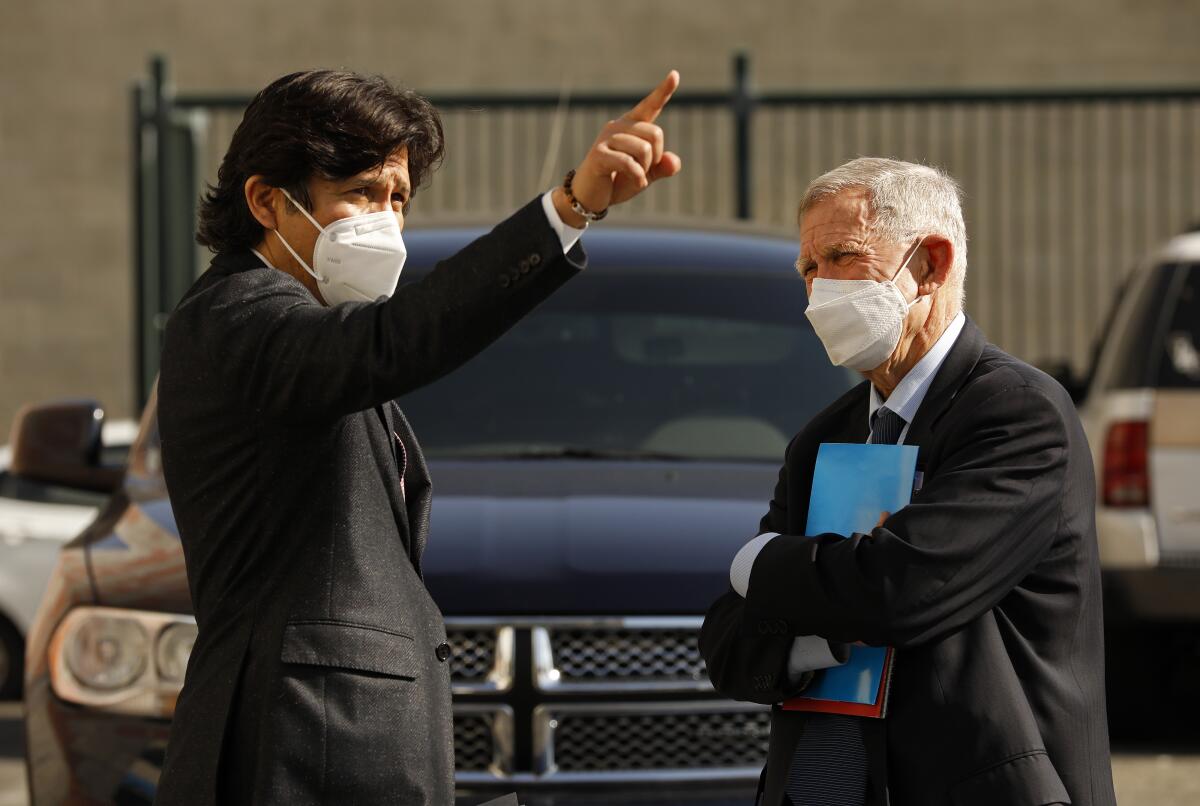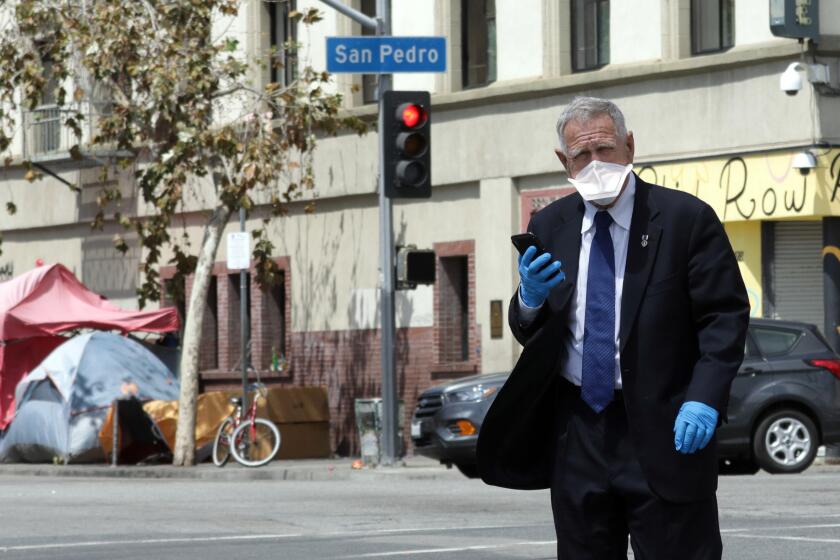Judge hits pause on request for L.A. to immediately put up $1 billion for homelessness

- Share via
A federal judge overseeing a lawsuit over homelessness in Los Angeles says in a new court order that he will give the city 60 days to detail how its planned $1 billion in funding for homelessness will be spent.
Judge David O. Carter, in a preliminary injunction last week, ordered the city to put $1 billion in an escrow account , with the money to be used for homelessness. The ruling came the same day that Mayor Eric Garcetti unveiled a city budget proposal to spend nearly $1 billion on homelessness.
Carter’s order also required the city and county to offer housing or shelter to everyone on skid row by the middle of October.
The city and county both appealed the order and sought a stay of Carter’s demands. Among other things, the city argued in its response that it didn’t have possession yet of the $1 billion, significant portions of which will come from the state and federal governments.
The city and county of L.A. may have a strong case as they seek to overturn a sweeping order requiring them to offer shelter to everyone on skid row.
Carter on Sunday agreed to stay his order targeting the money and instead gave the city 60 days to come up with a plan showing how the full $1 billion would be spent on homelessness. His action does not affect the appeals, which were filed with the U.S. 9th Circuit Court of Appeals.
The city’s plan must show funding sources, the number of individuals housed, completion dates for affordable housing projects and more. The plan must also detail how racial disparities in housing and homelessness will be addressed, according to Carter’s order.
Carter’s order last week to set aside $1 billion in funding blindsided city officials, who argued that the judge didn’t understand how municipal budgets worked and that they couldn’t simply write a check for the money.
At the same time, developers with projects under construction using city-directed funding from Proposition HHH, a bond measure passed by voters to pay for affordable housing, also expressed fear that the judge was raiding money intended for housing units. The judge’s order appeared to give priority to temporary shelter, whereas the city has allocated much of its spending on homelessness to permanent housing.
In his order Sunday, Carter wrote, “Rather than directing the city’s homelessness spending, the court’s order for escrow was intended to make certain that this promised money would in fact be set aside for homelessness.”
He added that his previous order “calls for both interim shelter and long term housing. Homeless Angelenos cannot be left to die while long term housing is in progress — no harm could be more grave or irreparable than the loss of life.”
Carter also agreed to hold off on calling for an immediate halt to all sales and leases of city property for housing projects that were not in progress as of last Tuesday. To clarify what “qualifies as projects in progress,” Carter agreed to stay that provision until a May 27 hearing in the case.
Carter, however, denied the request by the city and county for a stay on his order that housing or shelter be offered to everyone on skid row by the middle of October.
He said in his order Sunday that the “court notes that under the terms of the preliminary injunction, while the city is ordered to offer housing options on this timeline, skid row residents are not required to accept and may decline these offers.”
Carter is overseeing a case brought against the city and county by the L.A. Alliance for Human Rights, a group made up largely of downtown business owners and residents that sued the city and county last year, arguing that they had mismanaged the homelessness crisis, wasted public money and violated various laws, including those protecting people with disabilities.
Carter in his order Sunday invited Garcetti and County Supervisor Hilda Solis to meet with the court for settlement discussions.
He wrote that “the failure of settlement negotiations over the last few months has been a source of concern for the court.”
“The city and county continue to squabble over financial responsibility for addressing the homelessness crisis,” Carter said. “Monetary commitments alone do not fulfill the parties’ obligations to their constituents. As action and accountability continue to stagnate, the homeless population and number of deaths increase.”
A representative for City Atty. Mike Feuer declined to comment on the judge’s order.
More to Read
Sign up for Essential California
The most important California stories and recommendations in your inbox every morning.
You may occasionally receive promotional content from the Los Angeles Times.












